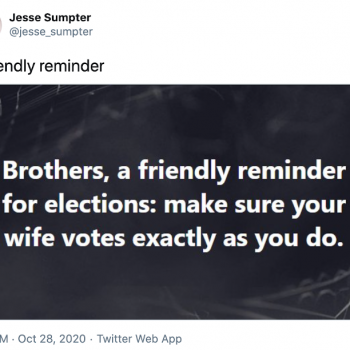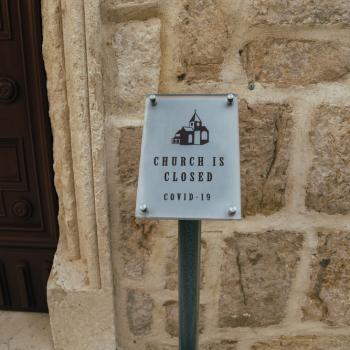The U.S. Court of Appeals for the First Circuit just issued a welcome ruling that prohibits taxpayer money from benefitting private religious education.

To make sense of it, you need to know two things:
1) Back in June, the Supreme Court’s conservative majority decided a case called Espinoza v. Montana Department of Revenue. The ruling essentially said that taxpayer funding could subsidize private religious education. In fact, if states offered funding for private schools at all, they may have to extend that offer to private religious schools, too. (It depended on the kind of funding program the state offered.)
2) In Maine, which is largely rural, there’s not always a local high school for students to attend. That’s why the state offers tuition reimbursement for parents who send their kids elsewhere, including private schools. BUT that reimbursement doesn’t apply to religious schools. Christians have been fighting this reality for decades but they’ve never had much success. After the Espinoza ruling, however, they decided to try again.
The families in the new case said Maine’s tuition reimbursement program was illegal because it excluded religious schools.
Thankfully, the First Circuit judges didn’t buy that argument. They said the schools those families wanted to attend discriminate against LGBTQ people and require teachers to accept Jesus. One school even requires employees to sign a statement that says “God recognize[s] homosexuals and other deviants as perverted.” These aren’t just regular schools owned by churches, in other words. These are schools that exist to promote a certain ideology.
Courthouse News explains what the judges said, referring to SCOTUS cases in Missouri and Montana that allows taxpayer money to flow to religious institutions:
… U.S. Circuit Judge David Barron, an Obama appointee, said that there was a big difference between religious status and religious activities. The Missouri and Montana programs denied subsidies to schools simply because of their status as being owned by a church — regardless of whether the education was religious in nature, Barron said.
By contrast, the Maine program denies subsidies only if the school’s educational program is explicitly religious.
The state’s “focus is on what the school teaches through its curriculum and related activities, and how the material is presented,” Barron explained.
“Sectarian schools are denied funds not because of who they are but because of what they would do with the money — use it to further the religious purposes of inculcation and proselytization.”
(Interesting side note: Former Supreme Court Justice David Souter was one of the three judges hearing this case.)
The plaintiffs say they’ll appeal to the Supreme Court. If they take it up, we can expect further erosion of the wall between church and state. But for now, the Appeals Court has correctly ruled that taxpayer money cannot be used to further religious indoctrination.
This isn’t complicated. It should be obvious. But when conservative Christians have as much power as they do, even the protections of the First Amendment remain up for grabs.
(Image via Shutterstock)




It’s Moving Day for the Friendly ..."
It’s Moving Day for the Friendly ..."
It’s Moving Day for the Friendly ..."
It’s Moving Day for the Friendly ..."